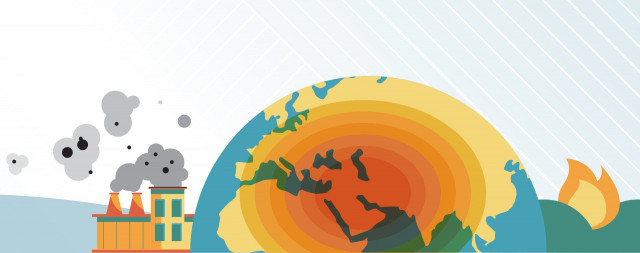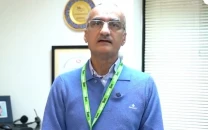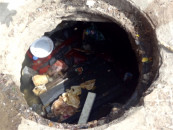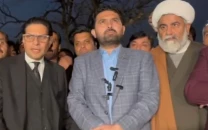EU, Pak agree to jointly address climate issues
Joint commission discusses ways to address issues hampering investment

The European Union and Pakistan have agreed to further cooperate to address climate change-related challenges especially after the recent floods ravaged the country.
The development came at the 12th European Union (EU) - Pakistan Joint Commission meeting held in Islamabad on October 5 to exchange views on all areas of cooperation between the EU and Pakistan.
The joint commission was co-chaired by Gunnar Wiegand, the managing director for Asia and the Pacific in the European External Action Service, and Muhammad Humair Karim, the secretary, Ministry of Economic Affairs.
Representatives of the relevant ministries of the government of Pakistan as well as of the European Commission, the European External Action Service, the EU ambassador to Pakistan, Pakistan's ambassador to the EU and observers from EU member states also participated in the meeting.
According to a statement issued on Friday by the Ministry of Foreign Affairs, the EU expressed solidarity with the people affected by unprecedented climate-induced floods ravaging the country and informed about its contribution to addressing the most urgent needs of the affected population.
Pakistan expressed appreciation for the EU's and its member states' support in mobilising funds of €123 million as well as in-kind assistance for relief efforts. Pakistan also emphasised the need for additional assistance for the rehabilitation and reconstruction phase.
Both sides emphasised on the importance of bilateral trade relations, noting that the Generalised Scheme of Preferences Plus (GSP+) resulted in its increase to €12.2 billion in 2021.
They presented the results of the meeting of Sub-Group on Trade and discussed ways to address issues hampering business and investment.
The EU stressed effective implementation of the 27 international conventions related to GSP+; and Pakistan reiterated its firm commitment in this regard.
They also discussed enhancing cooperation in agriculture, food security, and quality standards.
The joint commission was briefed about the outcomes of the sub-group meeting on democracy, governance, rule of law and human rights.
Pakistan and the EU discussed civil and political rights, the rights of persons belonging to minorities and vulnerable groups and freedom of religion or belief, including concerns about anti-Muslim hatred.
They discussed the role of civil society organisations, freedom of expression and opinion, media freedom and the fight against disinformation.
Pakistan informed the participants about the steps taken to strengthen access to justice and reforms related to the application of death penalty. The EU welcomed Pakistan's legislation on the protection of women's and children's rights, the protection of transgender persons, as well as the protection of journalists.
Both parties discussed legislative proposals, namely the anti-torture bill and the bill on enforced disappearances.
They also discussed the electoral reforms process, including recommendations made by the 2018 Electoral Observation Mission.
Both the sides reiterated their commitment to multilateralism and the United Nations Charter. The joint commission was briefed about the results of the Sub-Group on Development Cooperation.
The EU and Pakistan took stock of the progress made in ongoing actions and exchanged information about the new programming cycle of the EU.
The EU and Pakistan also exchanged views on future programmes and longer-term development needs, including achieving the Sustainable Development Goals (SDGs).
The EU informed Pakistan about Global Gateway, a €300 billion co-investment strategy rooted in partnership, sustainability and the rule of law.
The EU and Pakistan emphasised their commitment to a closer cooperation on a comprehensive approach to migration.
This includes joint efforts to work towards new opportunities for legal migration as well as full and effective implementation of the EU-Pakistan Readmission Agreement.
They agreed to launch a comprehensive migration and mobility dialogue before the end of the year. They also discussed cooperation in the fields of education, culture, science and technology, as well as connectivity and digitalisation.
Besides bilateral cooperation, both sides also exchanged views on regional and global issues including Afghanistan and Jammu and Kashmir.
They stressed the need to find peaceful solutions to conflicts in full respect of the principles of international law and the UN Charter. The EU welcomed the progress made by Pakistan in the implementation of the Financial Action Task Force (FATF) Action Plans. It was agreed that the next session of the EU-Pakistan Joint Commission would be held in Brussels in 2023.
(With input from APP)



















COMMENTS
Comments are moderated and generally will be posted if they are on-topic and not abusive.
For more information, please see our Comments FAQ